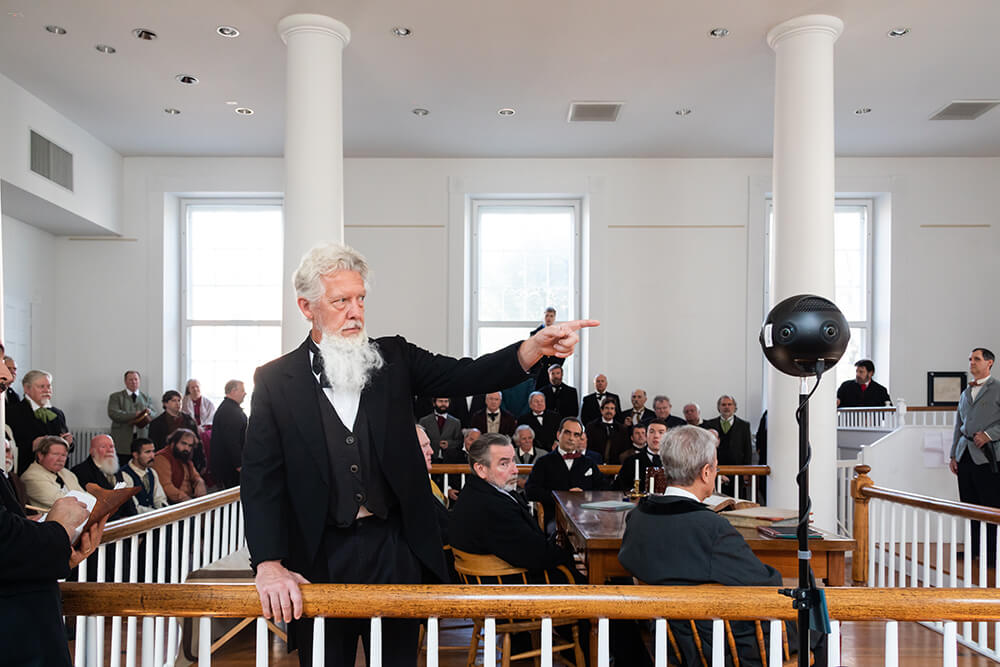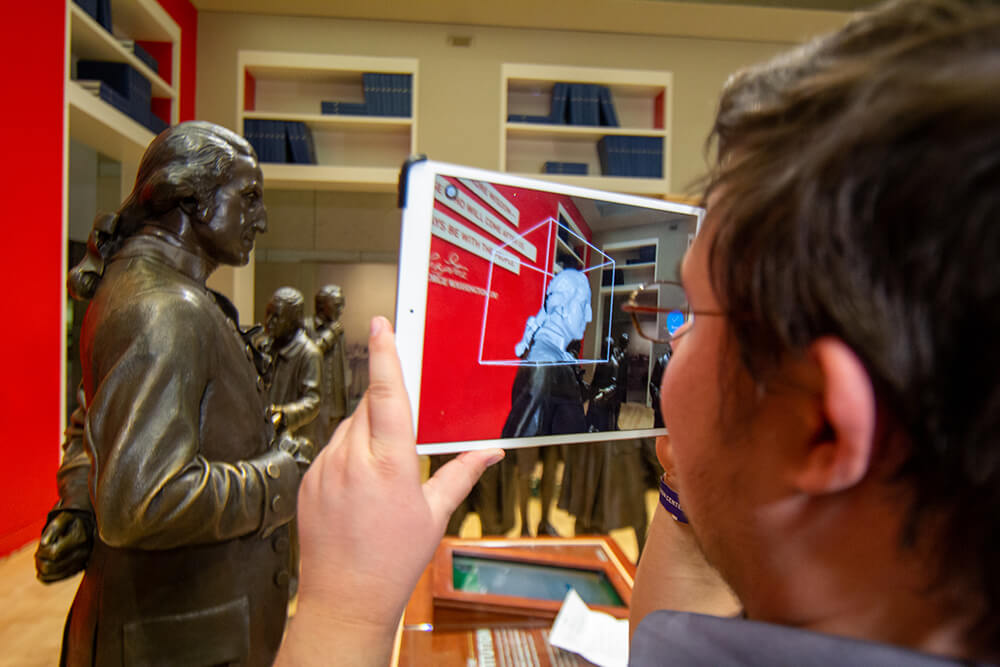Imagine studying history at Shenandoah University, taking courses in your favorite field, conducting your own research projects, and then creating a virtual experience based on them.
Make that dream a reality with guidance and assistance from the university’s widely acclaimed Shenandoah Center for Immersive Learning as well as from prestigious faculty members in Advanced Technology and visiting experts in the field. All the while, you will be earning a Certificate in History and Immersive Technology that accredits the basic skills you possess in transforming historical events into virtual or augmented reality experiences. This certificate can open doors to exciting career opportunities in interpreting and even recreating the past using one of the newest and most exciting media technologies.
Students who successfully complete the Certificate in History and Immersive Technology will be able to:
- Acquire fundamental knowledge in Immersive Technology.
- Produce applications that recreate historical experiences in 360-degree video experiences.
- Work with experienced developers in creating virtual and augmented reality experiences.
- Conduct original research in history and apply historical methods in creating script material for Immersive Technology experiences.
- Conceive educational and market opportunities for the experience of history through Immersive Technology media.

